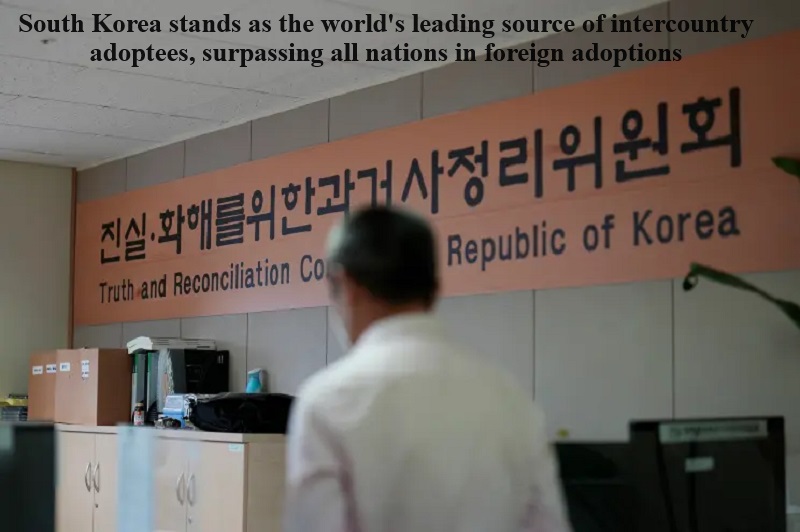
The central theme of the popular Korean film ‘Return to Seoul’ revolves around adoption and its profound connection to an individual’s identity. South Korea, notably, holds the distinction of being the world’s foremost source of intercountry adoptees, surpassing all other nations in foreign adoptions.
In response to pervasive allegations of corruption and misconduct within its adoption industry, South Korea launched its first official government investigation into the matter last year. While the results of this investigation are still pending, many adoptees have come forward to share their experiences of grappling with issues surrounding their own identities.
Since the conclusion of the Korean War in 1953, approximately 200,000 children have been sent abroad for adoption, primarily to the United States and Europe. Despite government efforts to encourage domestic adoptions, South Korean families have historically exhibited reluctance to adopt. During the post-Korean War decades, when the country faced challenges like poverty, limited medical services, and meager welfare budgets, the priority was to find overseas adoptive families for orphaned, abandoned, or disabled children.
The rapid promotion of overseas adoptions by South Korea, however, inadvertently gave rise to deep-seated problems within the industry. These issues included profit-driven adoption agencies falsifying or concealing documents to expand the pool of adoptable children. Unwed mothers often felt pressured into giving up their infants, sometimes even before birth, with limited follow-up on the well-being of these children in their new homes, as reported by the New York Times and NPR.
The origins of South Korea’s “baby export” business can be traced back to xenophobia and prejudice. Biracial children born to American soldiers and Korean women faced a grim choice: overseas adoption or a life plagued by poverty and societal shame.
Reforms have indeed been implemented in South Korea to rectify these malpractices within its adoption industry. In recent decades, the country has taken steps to reform adoption procedures, offering more support to single mothers and requiring court approval for overseas adoptions. Nevertheless, numerous allegations from earlier years have remained uninvestigated.
The call for accountability has been spearheaded by returning adoptees, who have joined forces with a new generation of advocates and politicians unafraid to confront this once-taboo legacy. In Seoul, various adoptee initiatives and guest houses have emerged to support Korean children adopted abroad and those who visit their country of origin.
Despite economic advancements, South Korea continued to promote adoption, leading to the liberalization of intercountry adoptions in the 1980s, ostensibly for “emigration and private diplomacy.” In 1985, a staggering 8,837 South Korean children were sent abroad for adoption, with 6,021 of them going to the United States, according to records from the national archives cited by the New York Times.
For each baby adopted, adoption agencies collected a “facilitating fee” ranging from $3,000 to $4,000 from the adoptive families, in addition to airfare and a separate $1,450 adoption fee. These practices contributed to South Korea being labeled an “exporter of babies” and the enduring moniker of “mail-order babies.”

Post Your Comments